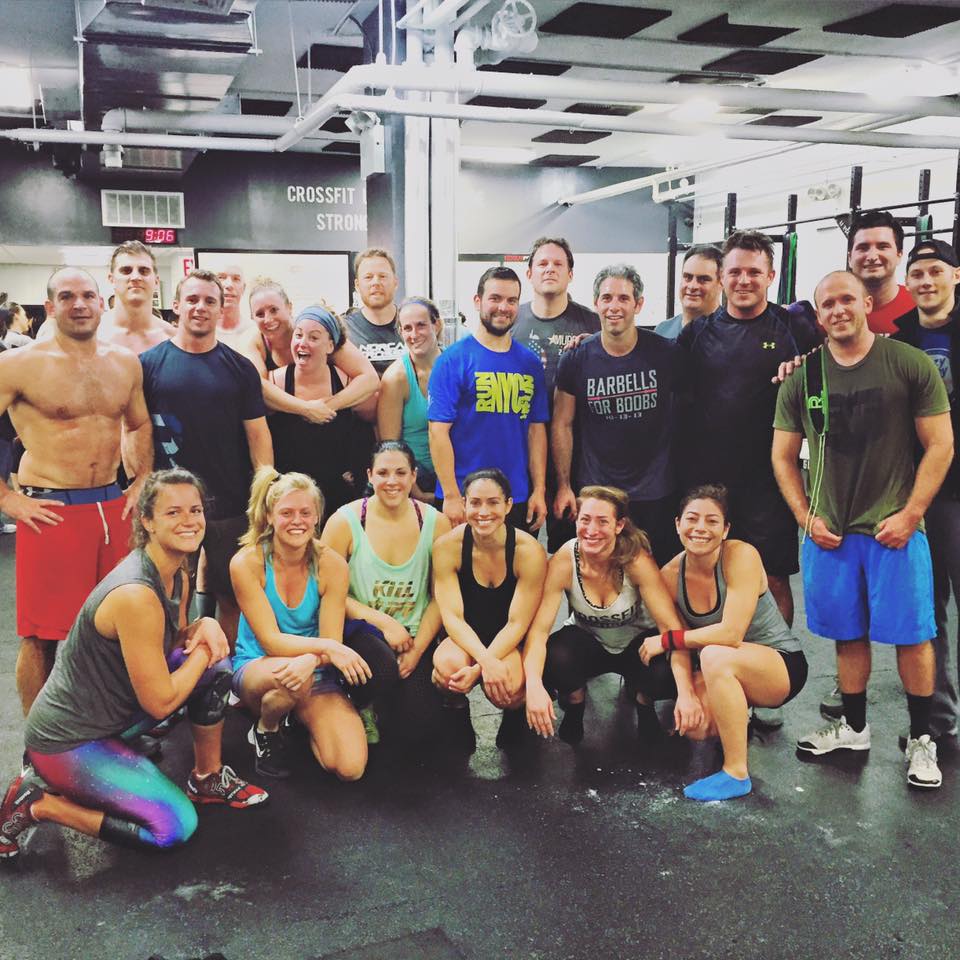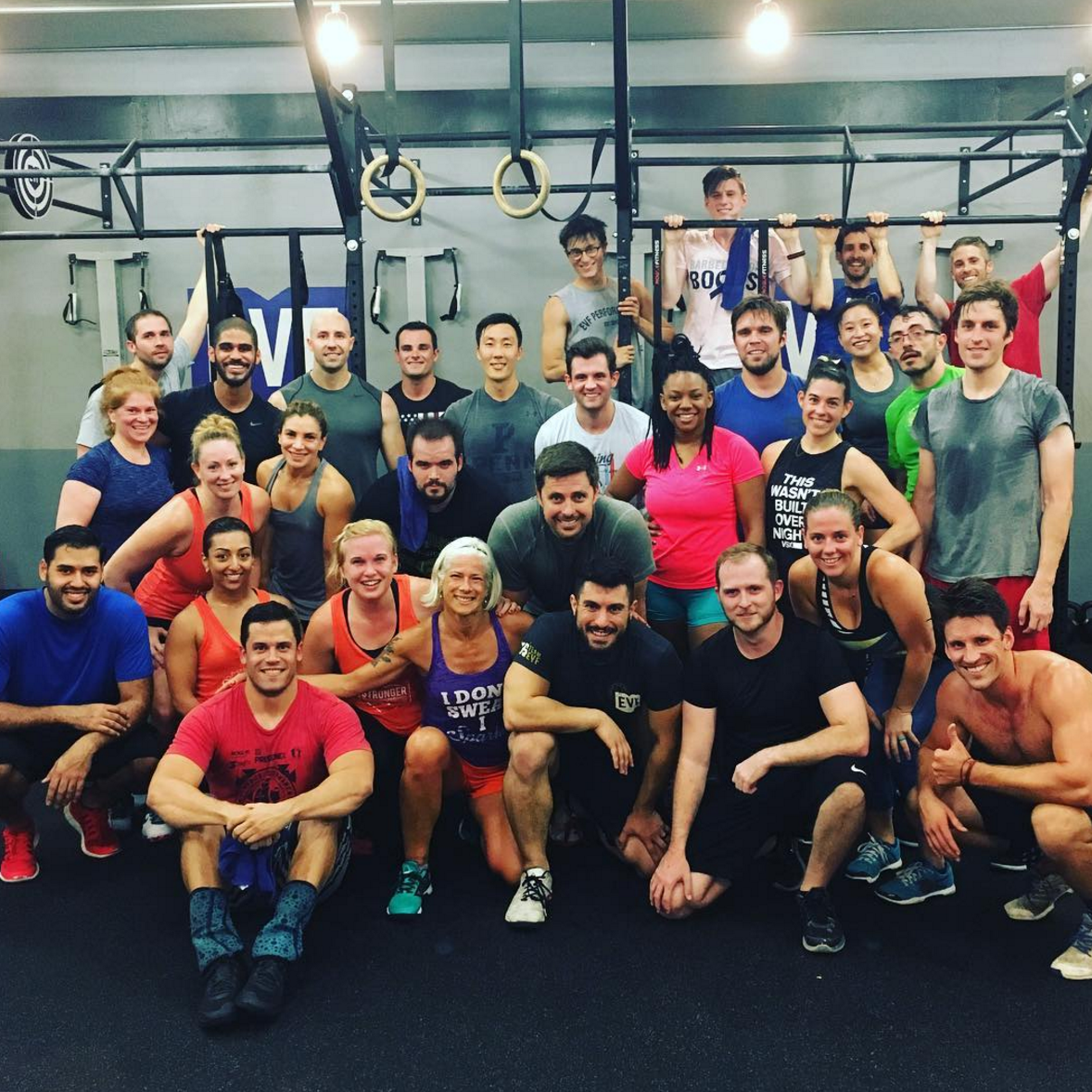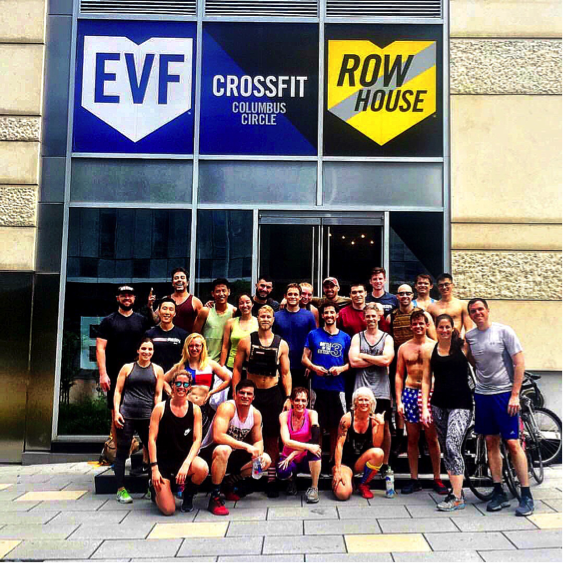Welcome to 2017 + Goal Setting
Just like that, it’s 2017. Congratulations to all of you on a year of hard work and achievements inside and outside the gym. The EVF community grew tremendously in 2016, and we’ve welcomed so many fresh faces to the Upper East Side and Columbus Circle during the last several months and into the new year.
To our newest members, this is the time to lean on the coaches and community. Don’t be afraid to ask questions, seek help on something you’re struggling with, and get involved. Our longtime members will tell you: immersing yourself in the community is what will keep you coming back, and consistency means progress. (Wondering where to start? Come to our annual holiday party this Saturday at Row NYC Hotel, 700 8th Avenue. The fun starts at 8:30 p.m. It’s a great way to connect with our coaches and your fellow athletes. Bring a guest, too!)
For our veterans, step up to help. If you see a new face, say hello. Support someone who is struggling. Encourage the last person finishing a workout. (You were there once too.) Show them what EVF is all about.
Goal setting (aka how to actually achieve what you want) with Coach Jenna
Ah, January. A time to reflect on the accomplishments of the past year and to put significant and overwhelming pressure on ourselves to be a better friend, co-worker, parent, human, etc., get a better job, lose weight and find a significant other. Right? Wrong. Anyone who knows me knows I don’t believe in New Year’s resolutions — too much pressure, too broad, and too disappointing if you fail.
But goals? I’m all about goals. Most of you who’ve taken my classes over the past week have been forced to name a fitness goal you have for the upcoming year. Some were big and more specific (bodyweight snatch), and some were smaller (stay healthy and be consistent). Goals are important, but even more important is having a plan. Or better yet, a system. How will you get there? What are the smaller, measurable things you can do along the way to get to the ultimate goal?
I recently looked over my 2016 goals. Some were smaller (i.e. floss every day, clean more often), some a little bigger (reduce my debt, squat 300 pounds), and some even bigger. Some I accomplished, others I didn’t. But I noticed that the places where I was the most successful were the ones where I had a system. Goals determine your direction; systems determine your progress.
So first ask yourself, (and this applies everywhere, not just in the gym) what do I want? What am I working toward? Coming in and just going through the motions doesn’t cut it. Figure out why you’re here, and be specific. The problem many of us have with goal-setting is we just have too many. Focus on one goal at a time in each aspect of your life — fitness, work and personal — and devise a daily system for how you’ll get there.
OK, you’ve decided that you want to add 20 pounds to your snatch this year. Great. Now you have to ask yourself some questions. How’s your overhead stability? How’s your hip and shoulder mobility? Core strength? These are all things you’ll have to work on. My “system” would look something like this …
Monday: 20 minutes snatch technique work
Tuesday: 15 minutes shoulder and wrist mobility
Wednesday: Snatch accessory work (snatch pulls, snatch balance, etc.)
Thursday: Off
Friday: 15 minutes hip mobility and 10 minutes core work
Saturday: Moderate to heavy snatch work
Sunday: Off
Obviously this schedule will look different for everyone, depending on your goals and specific weaknesses. Ultimately, we have to develop new habits, and almost force ourselves to do these things until they become second nature.
In his book “Transform Your Habits,” James Clear talks about the technique of “habit stacking.” Choose something you already do, and implement the new habit around the one you’ve already built. Just fill in this sentence: After/before [CURRENT HABIT], I will [NEW HABIT]. For example, if your goal is to improve your mobility, you might say, “Before I take my shower in the morning, I will stretch for 10 minutes.” Want to drink less alcohol? “After dinner, I will make a cup of tea.” You get the idea.
And finally, and perhaps the most important, track your progress. The more you’re able to see your progress on paper, the more likely you are to stick with your system. Get a logbook, track it on your phone, write it on a Post-It, whatever. Just write it down. But remember: measuring, counting and tracking is less about the outcome and more finding about a way to discover and understand what works. To keep you showing up and to maintain your focus.
We’re coming up with some goal sheets so you guys can stay accountable, and we as coaches can help to keep you there. Let’s go into the new year with purpose, focus, and a positive attitude.
2017 01 05





